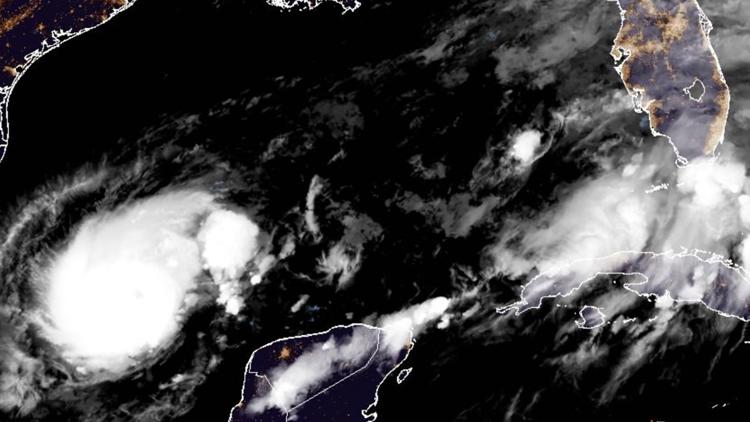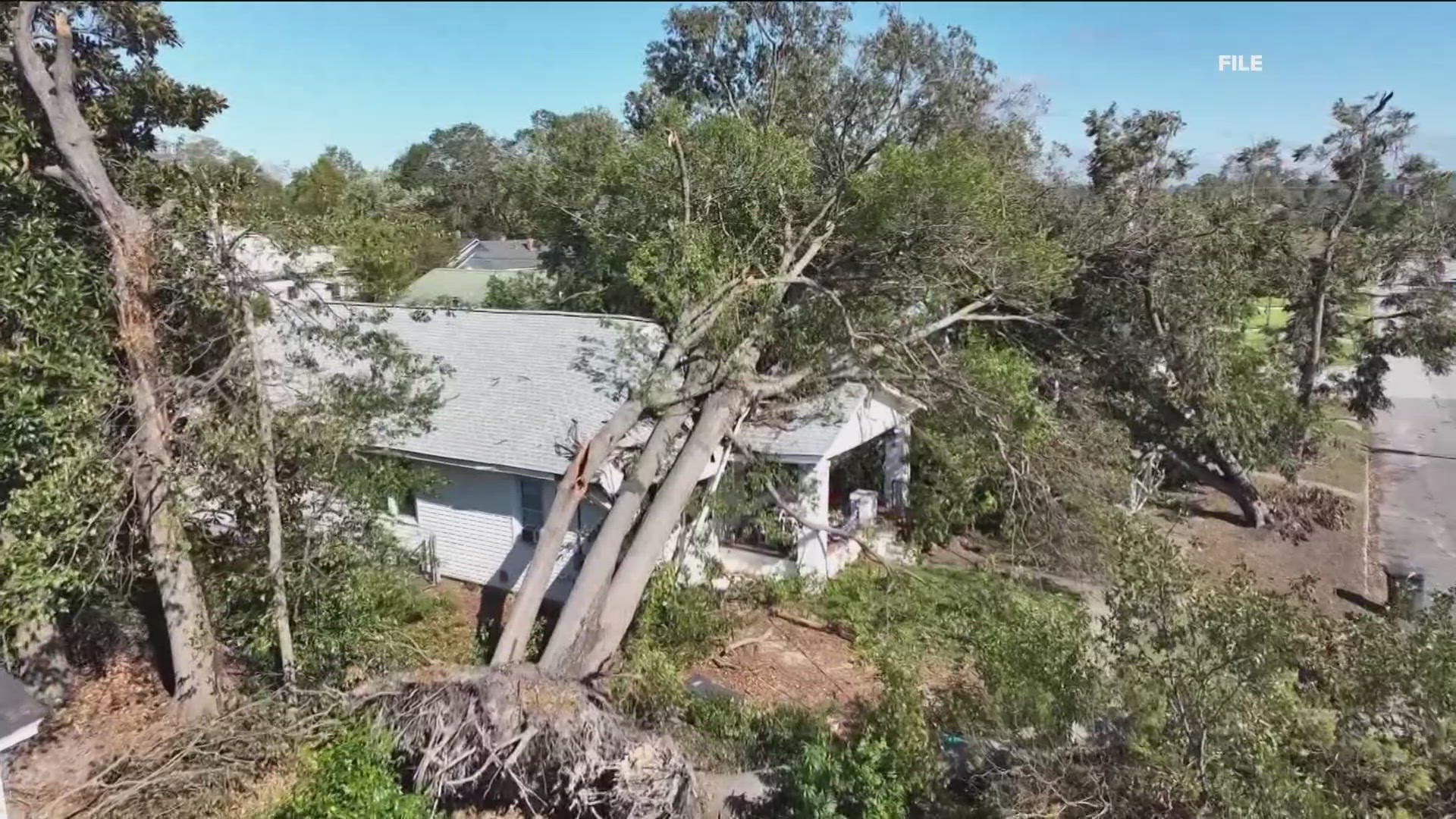ATLANTA — Milton increased to a Category 5 hurricane on Monday as Florida gears up for what could be its biggest evacuation in seven years as the storm heads toward major population centers including Tampa and Orlando.
Hurricane Milton was strengthening over the southern Gulf of Mexico as storm surge and hurricane watches for parts of Florida and a hurricane warning for the Mexican coast were issued, the National Hurricane Center in Miami said in a 5 a.m. advisory.
About 7 million people were urged to evacuate Florida in 2017 as Hurricane Irma bore down on the state. The exodus jammed freeways, led to hourslong lines at gas stations that still had fuel and left evacuees frustrated and, in some cases, vowing never to evacuate again.
Ahead of Florida evacuees going north toward Georgia, the state emergency management agency cautioned over the weekend against taking refuge in the southern portion of the state, which is still recovering from Helene damage.
The Georgia Emergency Management Agency/Homeland Security (GEMA) instead advised people to go to Atlanta, Macon, Albany or Columbus. Valdosta and Augusta, in south and eastern Georgia, were hit especially hard by Helene in what Gov. Brian Kemp described last week as like a "230, 240 mile tornado went through our state."
"Florida Evacuees: Due to the damages across many Georgia counties from Hurricane Helene, we welcome you to find refuge in Albany, Columbus, Macon, and Atlanta. However, please call ahead as resources in South Georgia are limited. For info, visit http://gema.georgia.gov," GEMA posted on X.
While forecast models vary widely, the most likely path suggests Milton could make landfall Wednesday in the Tampa Bay area and remain a hurricane as it moves across central Florida into the Atlantic Ocean. That would largely spare other southeastern states ravaged by Hurricane Helene, which caused catastrophic damage from Florida into the Appalachian Mountains and a death toll that rose Sunday to at least 230 people.
Building on lessons learned during Irma and other previous storms, Florida is staging emergency fuel for gas vehicles and charging stations for electric vehicles along evacuation routes, Kevin Guthrie, executive director of the Florida Division of Emergency Management, said at a Sunday briefing.
“We are looking at every potential, possible location that can potentially house someone, as what we refer to in emergency management, as a refuge of last resort,” Guthrie added.
Hurricane Milton is intensifying rapidly and will likely be a major hurricane before slamming into the storm-ravaged Gulf Coast midweek.
Florida Gov. Ron DeSantis said Sunday that while it remains to be seen where Milton will strike, it’s clear the state is going to be hit hard.
“I don’t think there’s any scenario where we don’t have major impacts at this point," he said.
“You have time to prepare — all day today, all day Monday, probably all day Tuesday to be sure your hurricane preparedness plan is in place,” DeSantis said. “If you’re on that west coast of Florida, barrier islands, just assume you’ll be asked to leave.”
The St. Petersburg-Tampa Bay area is still cleaning up extensive damage from Helene and its powerful storm surge. Twelve people perished as Helene swamped the coast, with the worst damage along the narrow, 20-mile string of barrier islands that stretch from St. Petersburg to Clearwater.
DeSantis expanded his state of emergency declaration Sunday to 51 counties and said Floridians should prepare for more power outages and disruption, making sure they have a week’s worth of food and water and are ready to hit the road.
“We are preparing ... for the largest evacuation that we have seen, most likely since 2017, Hurricane Irma," Guthrie said.
People who live in homes built after Florida strengthened codes in 2004, who don’t depend on constant electricity and who aren’t in evacuation zones should probably avoid the roads, Guthrie said.
All classes and school activities in St. Petersburg’s Pinellas County preemptively closed Monday through Wednesday as Milton approached. Officials in Tampa opened all city garages free of charge to residents hoping to protect their cars from floodwaters, including electric vehicles. The vehicles must be left on the third floor or higher in each garage.
As many as 4,000 National Guard troops are helping state crews to remove debris, DeSantis said, and he directed Florida crews dispatched to North Carolina in Helene’s aftermath to return in preparation for Milton.
“All available state assets ... are being marshaled to help remove debris,” DeSantis said. “We’re going 24-7 ... it’s all hands on deck.”



